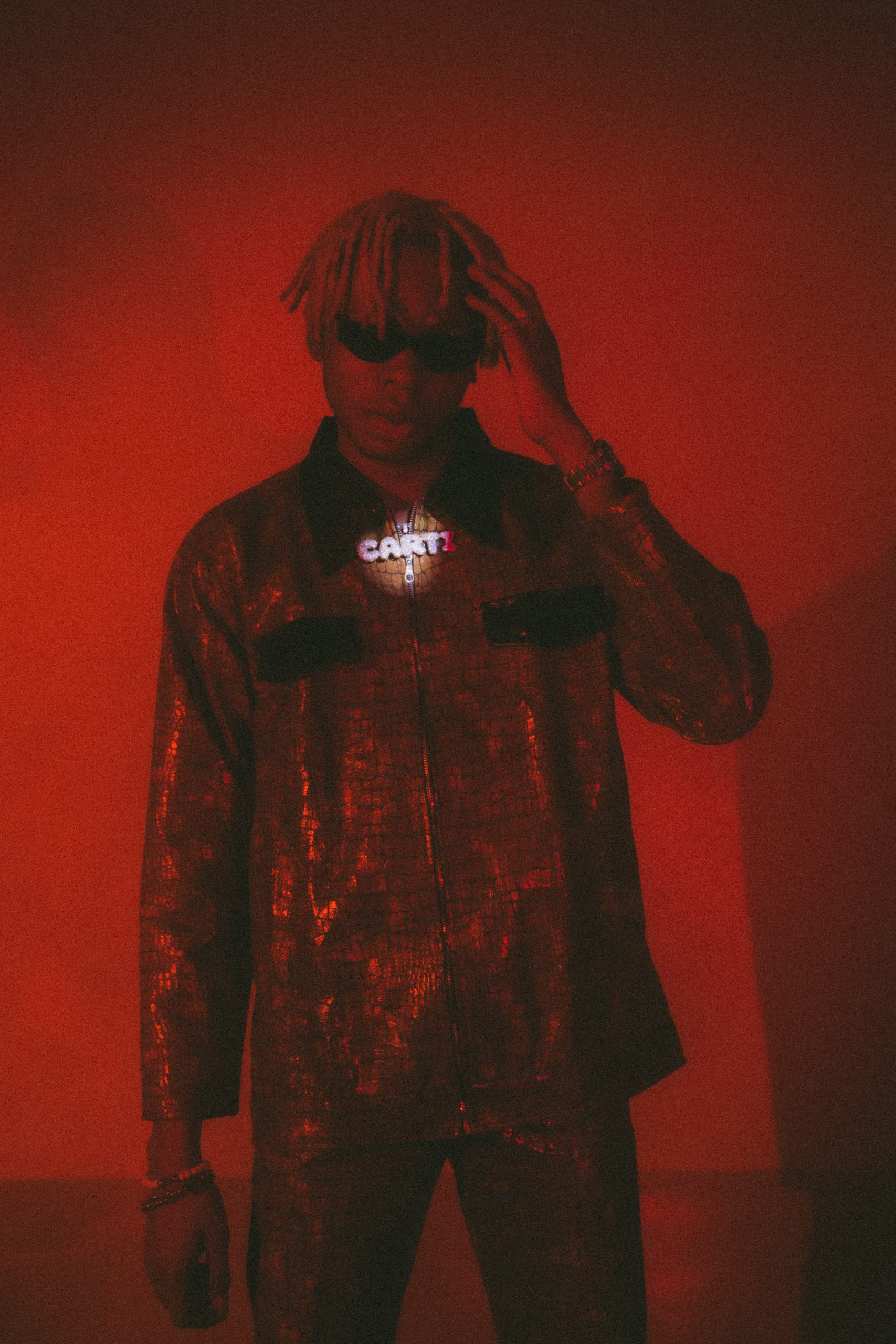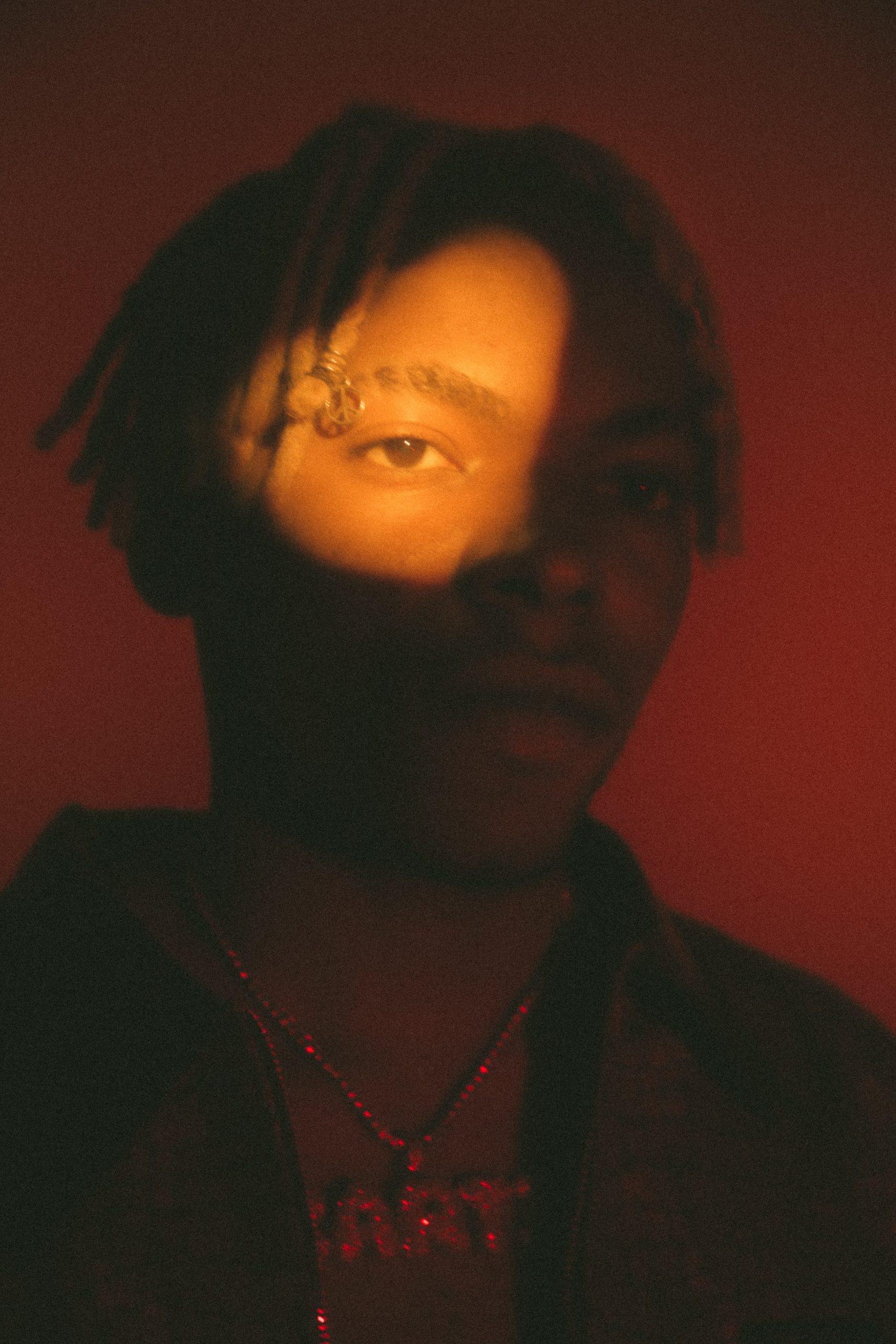
Carterson: Melodies Like Diamonds In Groove
Carterson talks creative process, music journey, and upcoming album.

“Right from when I was a kid, I have always loved music,” Carterson tells me one Wednesday afternoon in Lagos, his face brimming with excitement. He is planning the roll-out for his debut album dubbed; Diamonds in Groove. Unlike most music artists, he seems unscathed, refusing to get entangled in the web of pressure that lurks around creativity. Instead, his mien flushes with zeal and childlike anticipation. “On my debut album, I’m unleashing versatility on diverse sounds, from Hip Hop to Afrobeat, to Amapiano!” his voice rings with determination.
Carterson’s tale is no stranger from the regular grass-to-grace ascent. However, for the young musician, it is interesting to see an artiste display such levels of intentionality in building their sonic signatures. For Carterson, it is neither a drive for fame nor lust for cash that gets his vocals in studio booths; it’s a relentless, sheer love for the music that drives the Afro-fusion enigma into the hallways of fame.
Born Gbubemi Ogholaja, Carterson started gaining cult popularity with the release of his single, Yur Luv, in 2020, with its accompanying visuals directed by TG Omori. His earlier works, including 2019’s Ubo Meji and Like Rihanna, have also constellated to create a striking portrait of his potential. In this conversation, the intriguing act peels back layers on his childhood and getting into music, his creative process, and his vision for his career.
You have been very active in the Hip-hop scene in Nigeria. What inspires you toward that direction?
From an early age, I always loved hip-hop and rap music, I remember having a phone then, and all the music in it was rap music. I’ll always rap along to my favorite rap songs when they come on the radio, on TV, or anywhere. There are rap songs that are highly philosophical and contain punchlines and wordplays that aim to make you recognize how illuminated the artist is, there are rap songs that touch on issues within your surroundings that are highly relatable, and there are some with good storytelling amongst others that paint a picture you will understand.
You have got an upcoming debut album. Can you tell us about it?
On my debut album, I am unleashing versatility on diverse sounds from Afrobeats, Amapiano, Hip-hop, and Dancehall. I titled this album “Diamonds in Groove” because all the songs are everlasting gems like diamonds, and the groove stands for jolly and merry. I want listeners to be happy when playing this album. As a versatile artist, I never want to restrict myself to one genre. Today I make afrobeat music, tomorrow, I will be making hip-hop or dancehall, and I am always open to trying out new sounds because I have been making music since I was a child.
You also have songs in pop, like “Yur Luv,” Tell me about this versatility and the strategy behind it.
“Yur Luv” came after I released my song “Like Rihanna,” and I saw how my fans and music lovers received it. The song talks about a girl I admired many years ago in my teenage years and desired her love, so I just went creative with the whole thing and made it a song for my fans and good music listeners. As I said earlier, I am a musician who enjoys experimenting with sounds in different genres.
Describe your typical creative process.
I get most of my musical ideas When I’m in the bathroom, alone, or something happens to me. Other times, I witness a scenario in my surroundings, experiences, and movies, and I get inspired to make music.

Your music also thrives with some indigenous flavor. You have songs like Ubo Meji. How does culture influence your music?
The title of the song is a punchline. Firstly it means double in itsekiri, my native language, and it is a song I made manifesting that all the blessings I want God to give me and my guys should be double. Secondly, it means a mad person, so from another point of view, it means a crazy rapper. I also have another song called Itsekiri, an ode to my native language Itsekiri too.
How did you get into music?
Around the age of 8, I began writing songs with my neighbor’s kids, and then I joined the children’s choir at my church. Afterward, I went to a boarding school, where I had friends with whom we wrote lyrics at school and formed a band. During my SS3, I recorded my first song, and I kept going till this day.
Can you tell us some of your major influences in music?
My stage name Carterson is not an English name. It was coined because of my love for international music star Lil Wayne. Back in school, I used to rap most of his songs so well that I was nicknamed Weezy. I also love J Cole, 21 Savage, Pusha T, The Game, Drake, Kid Cudi & Kanye West, and they influence my music one way or the other.
Who are some of the current Nigerian acts you intend to collaborate with soon?
I don’t think I have a specific one in mind, and by the way, I constantly create and record, and if there’s a song I have that would need me to feature another artist, I reach out to them. I make music without any specific acts in my mind when creating them.
What is the vision for Carterson?
More and more music. Bigger and better than I am today, and to always make music that will impact lives and live forever.
Ahead of his debut album, Caterson has churned out relatable music and was Tunecore’s artist of the week with his recent release Woodie Drip. There’s only growth and progress as he continues to expand his discography with new exploits.